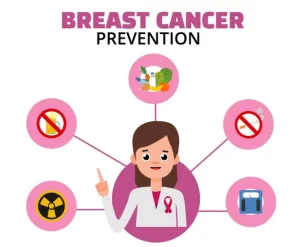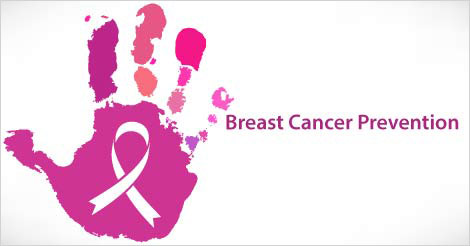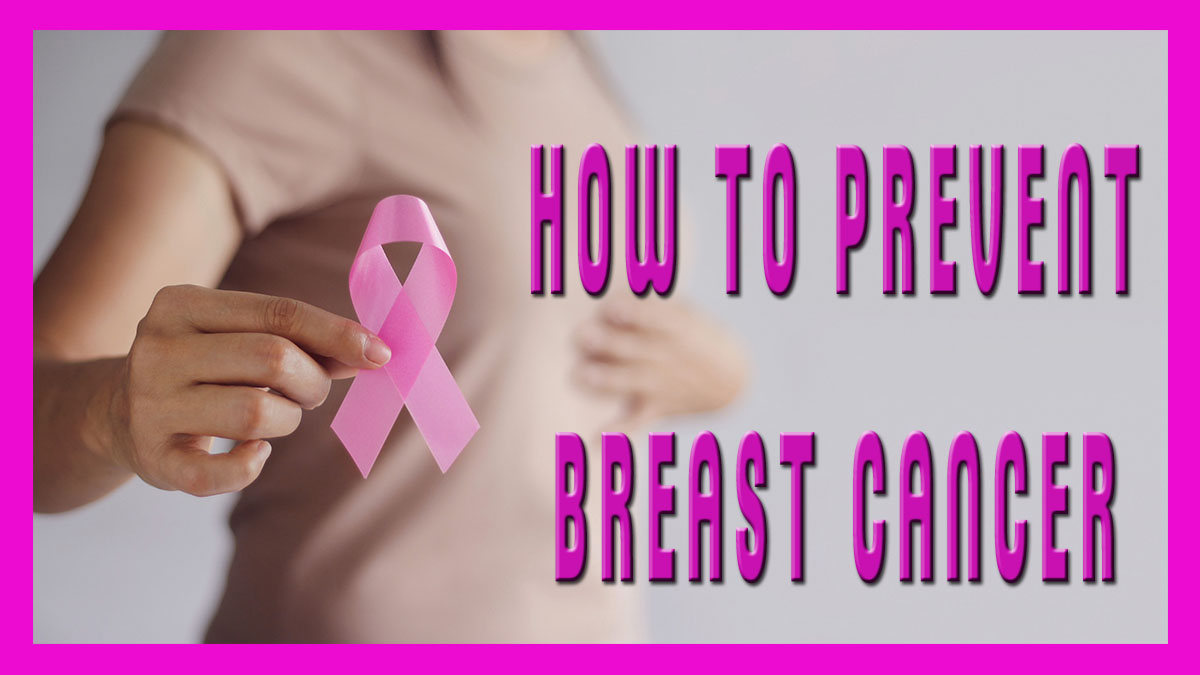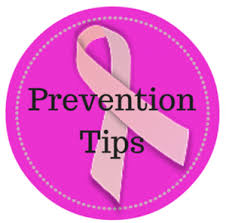How to Prevent Breast Cancer: Effective Strategies and Tips
Breast cancer is one of the most common forms of cancer affecting women worldwide. While certain risk factors such as age, gender, and genetics are beyond our control, adopting preventive measures can significantly lower the risk of developing this disease. This comprehensive guide explores evidence-based strategies for reducing the likelihood of breast cancer.
Understanding Breast Cancer Risk Factors
Before diving into preventive measures, it’s crucial to understand the primary risk factors associated with breast cancer. These include:
-
Age: The risk increases with age, particularly after 50.
-
Genetic Mutations: Inherited mutations in BRCA1 and BRCA2 genes significantly elevate risk.
-
Family History: A history of breast cancer in close relatives can heighten the likelihood.
-
Hormonal Factors: Prolonged exposure to estrogen, such as early menstruation or late menopause, can increase risk.
-
Lifestyle Choices: Sedentary lifestyles, unhealthy diets, and alcohol consumption are modifiable risk factors.
By understanding these factors, we can focus on actionable steps to mitigate risk.
1. Maintain a Healthy Weight
 Excess body fat, particularly after menopause, is associated with higher levels of estrogen and insulin, which can promote the development of breast cancer. To maintain a healthy weight:
Excess body fat, particularly after menopause, is associated with higher levels of estrogen and insulin, which can promote the development of breast cancer. To maintain a healthy weight:
-
Adopt a Balanced Diet: Incorporate vegetables, fruits, whole grains, and lean proteins.
-
Avoid Sugary and Processed Foods: Limit consumption of foods high in sugar, trans fats, and refined carbs.
-
Monitor Your BMI: Aim for a body mass index (BMI) between 18.5 and 24.9, as recommended by health organizations.
2. Exercise Regularly
Physical activity helps regulate hormones, including estrogen, and boosts immune function. Research suggests that even moderate exercise can reduce breast cancer risk by 10-20%.
-
Recommended Activities: Engage in at least 150 minutes of moderate aerobic exercise or 75 minutes of vigorous exercise weekly.
-
Incorporate Strength Training: Add two days of muscle-strengthening activities to your routine.
-
Stay Active Daily: Simple habits like walking, gardening, or climbing stairs contribute to an active lifestyle.
3. Limit Alcohol Consumption
Alcohol increases estrogen levels and can damage DNA, both of which raise breast cancer risk. To minimize harm:
-
Follow Guidelines: Limit alcohol intake to no more than one drink per day for women.
-
Consider Alternatives: Opt for non-alcoholic beverages or herbal teas during social events.
-
Educate Yourself: Understand the link between alcohol and cancer risk to make informed choices.
4. Adopt a Nutrient-Rich Diet
Certain foods contain nutrients that help protect against cancer by reducing inflammation and neutralizing harmful free radicals.
-
Consume Antioxidant-Rich Foods: Include berries, dark leafy greens, nuts, and seeds.
-
Incorporate Omega-3 Fatty Acids: Found in fatty fish like salmon and flaxseeds, these fats have anti-inflammatory properties.
-
Avoid Processed Meats: Studies suggest that processed and red meats may increase cancer risk.
5. Breastfeed if Possible
Breastfeeding offers protective benefits by lowering estrogen levels and shedding breast tissue cells that may have DNA damage.
-
Duration Matters: The longer you breastfeed, the greater the protective effect.
-
Support Resources: Seek lactation consultants or support groups to ease challenges.
6. Avoid Hormone Replacement Therapy (HRT)
Long-term use of hormone replacement therapy, particularly combined estrogen-progestin therapy, has been linked to an increased risk of breast cancer.
-
Discuss Alternatives: Work with your doctor to explore non-hormonal options for managing menopause symptoms.
-
Use for Short Durations: If HRT is necessary, use the lowest effective dose for the shortest time.
7. Regular Screenings and Self-Exams
Early detection is key to successful treatment and improved outcomes. Regular screenings and self-awareness can help detect breast cancer in its earliest stages.
-
Mammograms: Follow your healthcare provider’s recommendations for routine mammograms, typically starting at age 40-50.
-
Self-Exams: Conduct monthly breast self-exams to become familiar with your breast tissue and detect any changes.
-
Clinical Exams: Schedule regular check-ups with your doctor for professional assessments.

8. Avoid Tobacco Products
Smoking is linked to a higher risk of breast cancer, particularly in premenopausal women. To reduce risk:
-
Quit Smoking: Seek support programs or medications to assist in quitting.
-
Avoid Secondhand Smoke: Minimize exposure to environments where smoking occurs.
9. Manage Stress Effectively
Chronic stress can disrupt hormonal balance and weaken the immune system, potentially contributing to cancer development.
-
Practice Relaxation Techniques: Activities like yoga, meditation, and deep breathing can reduce stress.
-
Engage in Hobbies: Pursue activities that bring joy and relaxation.
-
Seek Support: Talk to a therapist or join support groups if stress becomes overwhelming.
10. Consider Genetic Testing and Counseling
For individuals with a family history of breast cancer, genetic testing can provide insights into inherited risks.
-
Consult a Specialist: Genetic counselors can help interpret test results and recommend preventive measures.
-
Prophylactic Measures: In some cases, preventive surgery or medication may be considered for high-risk individuals.
11. Limit Exposure to Environmental Toxins
Certain chemicals found in plastics, pesticides, and personal care products may mimic estrogen and contribute to cancer risk.
-
Choose Safe Products: Opt for BPA-free plastics and natural skincare products.
-
Wash Produce Thoroughly: Reduce pesticide exposure by cleaning fruits and vegetables.
-
Avoid Excessive Radiation: Limit exposure to unnecessary medical imaging unless absolutely necessary.
How to Prevent Breast Cancer – Click Here
Conclusion
Preventing breast cancer involves a combination of lifestyle changes, regular medical care, and informed decision-making. While no single strategy guarantees complete prevention, implementing these evidence-based tips can significantly lower your risk. Remember, early detection through screenings and staying proactive about your health are equally vital in combating breast cancer.
By adopting these practices, you not only reduce your breast cancer risk but also improve your overall health and well-being.

Tags:
How to prevent breast cancer,
Breast cancer prevention tips,
Healthy lifestyle to prevent breast cancer,
Risk factors for breast cancer,
Breast cancer diet and exercise,
Alcohol and breast cancer risk,
Benefits of breastfeeding for cancer prevention,
Hormone replacement therapy and cancer,
Genetic testing for breast cancer risk,
Early detection of breast cancer,
#Howtopreventbreastcancer
#Breastcancerpreventiontips
#Healthylifestyletopreventbreastcancer
#Riskfactorsforbreastcancer
#Breastcancerdietandexercise
#Alcoholandbreastcancerrisk
#Benefitsofbreastfeedingforcancerprevention
#Hormonereplacementtherapyandcancer
#Genetictestingforbreastcancerrisk
#Earlydetectionofbreastcâncer

